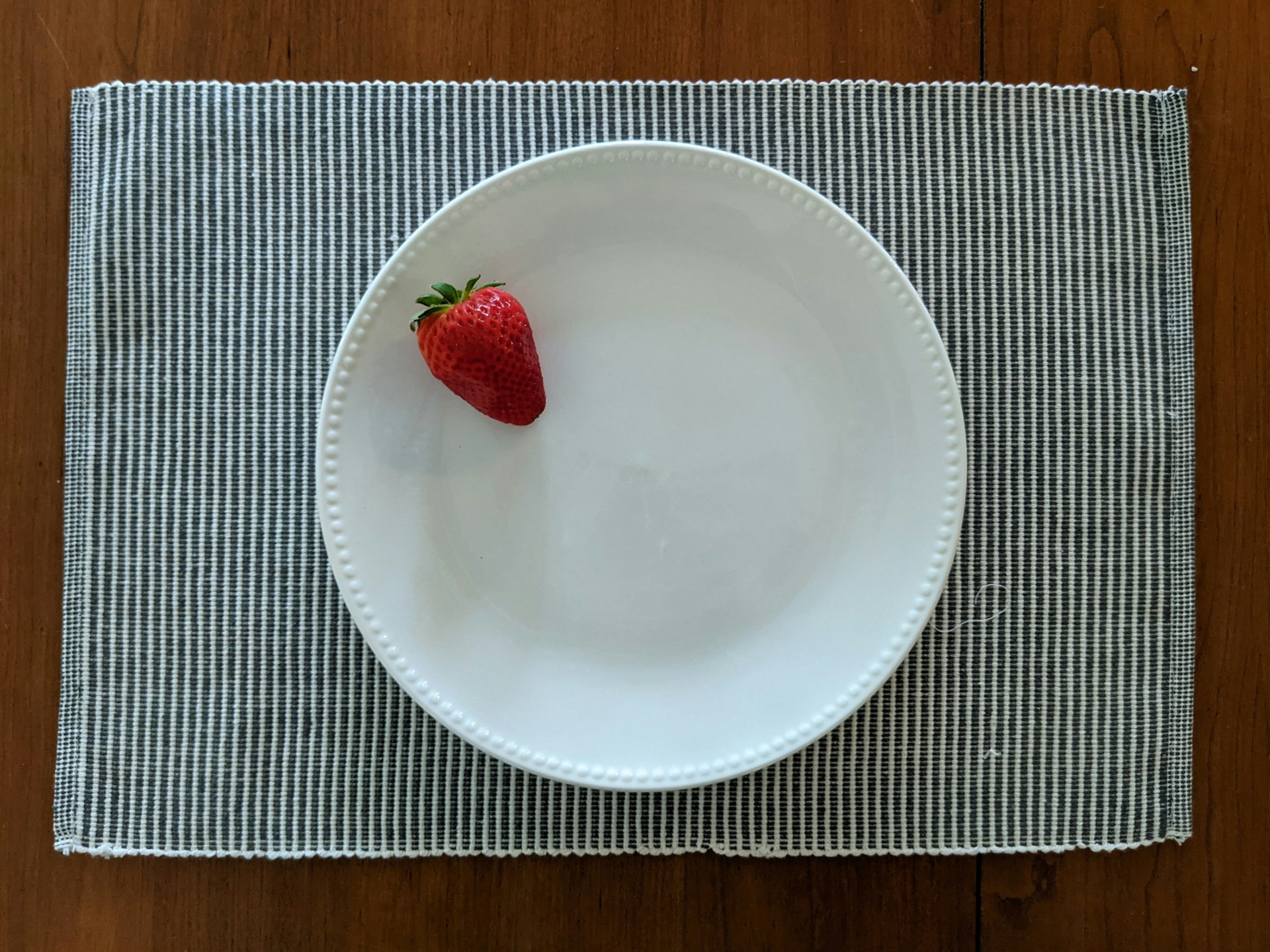Many individuals have chosen to try prescription weight loss drugs like semaglutide to help them lower their BMI (body mass index) and reach a healthier weight.
If you are active at all on social media, you are sure to have heard stories or maybe even followed someone’s significant weight loss journey while they were taking a GLP-1 medication, or maybe you are using one right now to help you lose weight.
You, like many people, may be wondering what happens if you stop taking Ozempic (semaglutide). Today, we are going to provide you some information about what to expect and how to avoid rebound weight gain if you choose to discontinue semaglutide.
{{cta_button}}
Understanding How Weight Loss Medications Work
Semaglutide helps you lose weight by mimicking a natural hormone that is made by your body and released into your digestive system when you eat. This natural hormone is called GLP-1 (glucagon-like peptide-1), and it helps to regulate blood sugar levels, keeps your metabolism running smoothly, and this extra GLP-1 slows down your digestion process so your stomach stays full longer.
It also affects the way your brain communicates with your stomach. When you are taking this medication, your brain sends signals to your stomach telling you that you are full even though you have eaten very little. Your feelings of hunger are reduced, so you eat less frequently and consume fewer calories.
When your metabolism is working properly, it normally performs all these functions very efficiently, but many times there is something interfering with this process for individuals who suffer from obesity. The semaglutide helps to get your metabolism back on track and makes it more efficient, so it is easier for you to create the calorie deficit needed to result in weight loss.
What Happens When You Stop Taking Ozempic (Semaglutide)?
When you stop taking semaglutide, the effects of the extra GLP-1 it has been providing also stop, which means your metabolism returns to the state it was in before you began taking the weight loss medication. If semaglutide was helping to manage your blood sugar levels, stopping it can mean losing that degree of regulation. It is very common for individuals to begin experiencing fatigue, intense cravings, and increased hunger, which makes it very tough to maintain healthy eating habits or practice portion control.
For many people, discontinuing the medication results in rebound weight gain, with some regaining all the weight they lost or even gaining to exceed their previous weight. A 2022 study reported that after stopping their 2.4 mg weekly dose of semaglutide and discontinuing lifestyle interventions, participants regained an average of two-thirds of their lost weight, and their weight-related health issues returned.
Can I Keep Weight Off After Stopping Ozempic?
Keeping weight off after semaglutide will be a different experience for each person, but having a solid understanding of how the medication was helping and knowing what to expect when it is discontinued will help prepare for the challenges ahead.
Strategies For Keeping Weight Off After Semaglutide
Now that you know how the medication was helping you, and you have a pretty good idea of some of the side effects you can expect after you stop using semaglutide, it is time to make a plan to maintain your results.
The first thing you should do is take an honest and candid look at what contributed to your excess weight and make a commitment to yourself to work hard to overcome these challenges. Here are some strategies to avoid rebound weight gain.
Work With An Expert In Obesity Medicine
Working closely with a weight loss professional like Dr. Steven Batash and his team at Batash Endoscopic Weight Loss Center in NYC can significantly increase your chances of sustaining your weight loss results. Dr. Batash can help identify issues that are related to your personal ability to lose weight or those that are contributing to weight gain.
Sometimes medications you are routinely taking can cause you to gain weight, and certain conditions such as thyroid, hormonal imbalances, PCOS, etc., can make it very hard for you to maintain a healthy weight. Having the support and guidance of professionals will significantly increase your chances of keeping the weight off after stopping Ozempic or other weight loss medication.
Be Consistent In Making Healthy Lifestyle Choices
The only way to shed pounds is by creating a calorie deficit, meaning you need to burn more calories than you consume. There is nothing magic about the medication; it simply helps you create a calorie deficit by optimizing your metabolism and greatly reducing food cravings and hunger pangs. In reality, you are actually doing a lot of the work to create the calorie deficit even while you are using semaglutide.
Successfully losing weight with or without weight loss medication requires lifestyle changes that include:
- Eating a healthy low-calorie diet;
- Avoiding unhealthy foods, including processed foods, fast food, junk foods, sugar-filled foods, etc;
- Engaging in an adequate amount of exercise;
- Get enough sleep;
- Take measures to manage stress.
The medication helps alleviate some of the most challenging aspects of losing weight, but, in the majority of cases, the lifestyle changes have contributed the most to your weight loss results, so it is important that you continue to stick to your improved lifestyle behaviors permanently.
{{cta_small}}
Transition Off The Medication Gradually
Gradually decreasing your dose over time can help prevent the severe cravings and feelings of intense hunger that some individuals experience. A Danish study reported that most patients who maintained their lifestyle changes and gradually weaned off of semaglutide were able to maintain their weight loss results. Maintaining a calorie deficit is necessary for you to continue to lose weight, or to sustain your weight loss results, you need to keep your calorie intake consistent.
Look For Opportunities To Get More Exercise
Make sure to be deliberate about getting in as much exercise as you can each day. Try taking the stairs to go up a few flights of stairs rather than taking the elevator, or start a routine of walking for 10 minutes every day right after you eat lunch.
Some find it helpful and rewarding to keep up with their steps using a fitness app, or they enjoy joining up with groups of people who participate in activities together, such as hiking or bowling. It is impossible to maintain a calorie deficit without incorporating some type of physical activity into your schedule.
Have A Routine For Mealtimes
Establishing a routine for mealtimes is important, especially for those who have not historically had a healthy relationship with food in the past. When you have consistent times for your meals, you help to set and regulate your hunger cues and avoid mindless snacking throughout the day. The goal is to eat when you are hungry and not just because you are bored or accustomed to eating during certain activities like watching television. Some of the strategies that many find helpful include:
Eat meals only at the table.Focus on eating during mealtime and nothing else, so you do not unintentionally overeat. Also, this allows your brain time to acknowledge you have eaten and signal to your stomach that you are no longer hungry. This is a strategy that is often referred to as mindful eating and is a way to retrain your brain and body and promote weight loss.Use a smaller plate.It is amazing how much our brain is involved in trying to sabotage our weight loss attempts by making us feel deprived. Controlling your portions and the number of calories you consume is a major part of creating a calorie deficit. Using a smaller plate can help fool your brain into believing that the portions on your plate are the perfect size.
Have healthy snacks in appropriate portions prepared in advance so they are ready to go when you need them. Snacks that are nutritious, taste good, and are low in calories normally take time to prepare, and we want to avoid grabbing junky snacks just because they are more convenient.
Enlist Help From A Nutritionist
Working with a nutritionist can be very beneficial while navigating through this transition and make it possible to avoid rebound weight gain after stopping Ozempic.
The experts at Batash Endoscopic Weight Loss Center will partner with you during your entire journey to better health. They offer nutrition and lifestyle guidance as part of their weight loss plans and in conjunction with an endoscopic weight loss procedure.
How To Not Gain Weight After Stopping Ozempic When Lifestyle Changes Alone Are Not Working
There are some individuals who, despite doing everything right, will be unable to sustain their weight loss results without the continued use of semaglutide or another type of medical intervention. If you are concerned about long-term side effects from a relatively new medication, you might want to consider an endoscopic procedure that reduces the size of your stomach, similar to gastric sleeve but without having to undergo surgery.
A Non-Surgical Stomach Reduction
Suture Sculpt ESG does not require any abdominal incisions or require a stay in the hospital, but it offers similar weight loss results as a bariatric gastric sleeve.
Dr. Batosh at Batash Endoscopic Weight Loss Center offers endoscopic sleeve gastroplasty (ESG) in New York City. He completes the procedure from the inside using a special tool to strategically place stitches in targeted locations that change the shape and size of your stomach. After Suture Sculpt ESG, you will only be able to eat very small portions, and it will take longer for your stomach to empty, so you will feel full for a longer time.
Some patients use ESG and GLP-1 medications together and are able to lose a substantial amount of weight fairly quickly. Talk to the professionals at Batash Endoscopic Weight Loss Center to learn more about Suture Sculpt ESG and find out why it is one of the best ways to keep the weight off after semaglutide. Set up your consultation today!
{{cta_button}}








